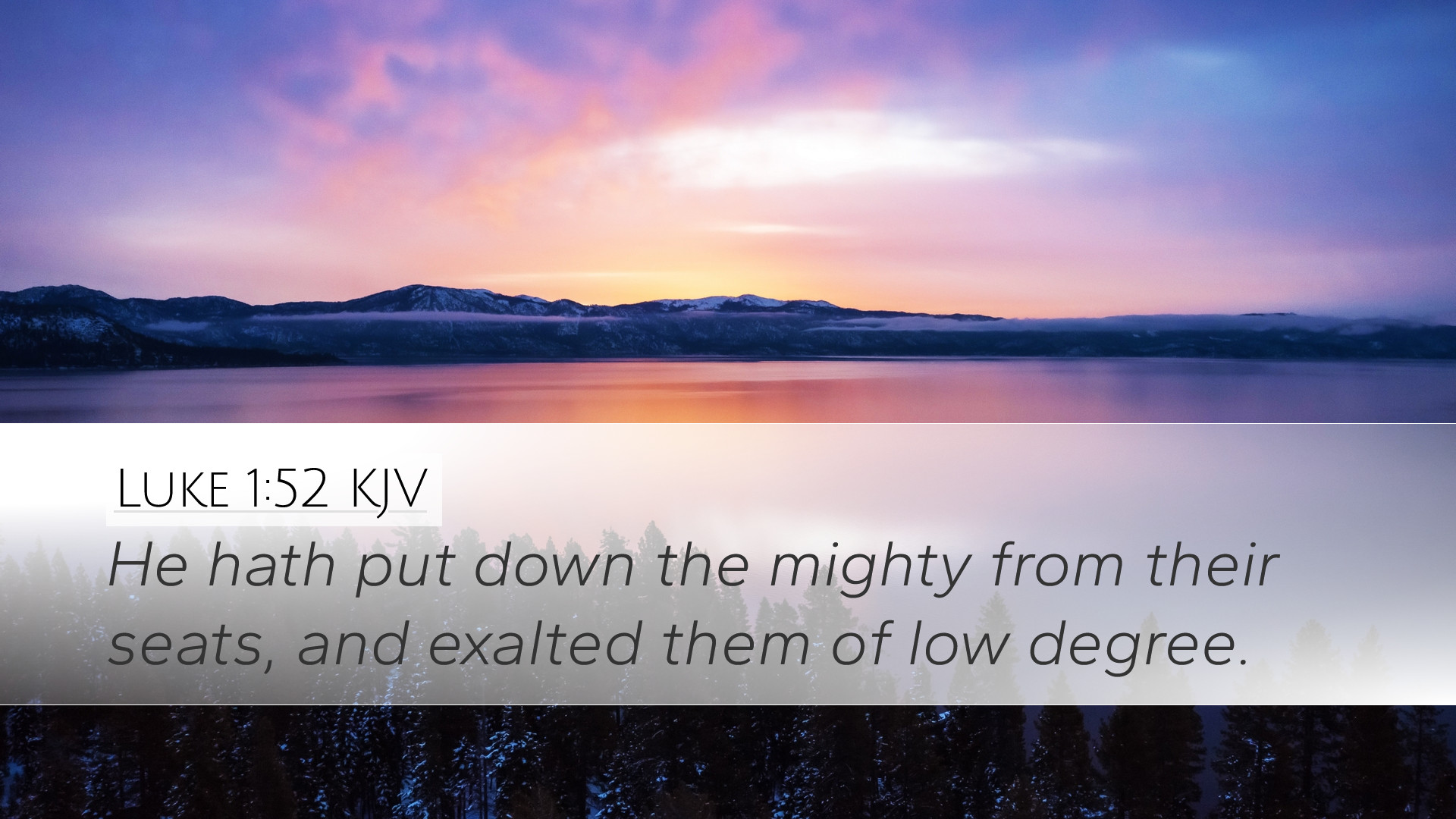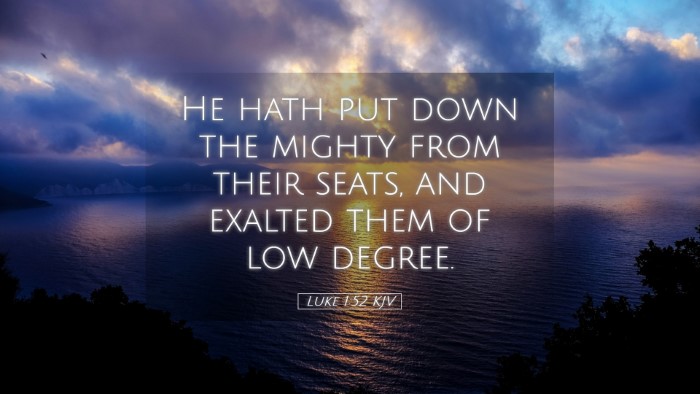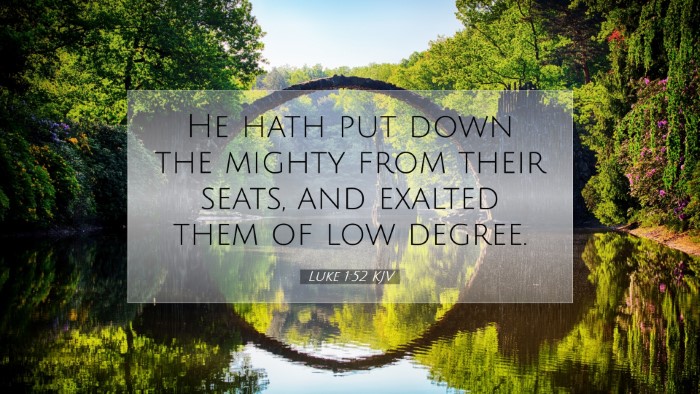Commentary on Luke 1:52
Luke 1:52 states, "He has brought down the mighty from their thrones and exalted those of humble estate." This passage, part of the Magnificat, showcases the profound reversal of social and spiritual hierarchies that God orchestrates throughout history.
Overview and Context
The setting of this verse is the visitation of Mary to her relative Elizabeth, where Mary responds to the divine announcement of the birth of Jesus. In this context, Mary's song, known as the Magnificat, praises God for His mighty deeds and emphasizes themes of justice, mercy, and the radical inversion of worldly values.
Mighty Brought Down
Matthew Henry's Commentary notes that the "mighty" represents those in powerful positions, such as kings, rulers, and oppressors. God's intervention in human affairs often leads to the humbling of the proud. This echoes the biblical principle expressed in James 4:6, where it states, "God resists the proud, but gives grace to the humble."
Furthermore, Albert Barnes indicates that this act of bringing down the mighty serves as a reassurance for the oppressed. Throughout scripture, God’s action against the proud is a recurring theme, designed to elevate the downtrodden and demonstrate His sovereignty over earthly powers.
Exalting the Humble
The second part of the verse emphasizes that God exalts those of humble estate. This reflects a divine preference for the meek and lowly, resonating with the beatitudes found in Matthew 5:3: "Blessed are the poor in spirit." Adam Clarke elaborates on this by citing the transformative work of God in reversing fortunes, as seen in the stories of David, the shepherd boy, and others who began from humble beginnings but were raised up by God’s providence.
Theological Implications
The significance of this verse lies in its theological implications regarding the nature of God. He is depicted as a just God who addresses human inequities, championing the cause of the marginalized. This affirms God's character as a social reformer, promising that those who are oppressed will one day see justice.
This theme is particularly relevant in today's context, offering hope that the current worldly structures of power and wealth do not define one's value in the eyes of God. Matthew Henry emphasizes this by pointing out God’s ability to "turn the tables" on societal norms, thus providing a message of hope for those who feel powerless.
Application for Believers
For pastors and theologians, this passage serves as a reminder that the Kingdom of God operates on principles that often counter cultural expectations. The call to bring justice and support the marginalized is integral to Christian ministry. Albert Barnes encourages believers to maintain humility and a willingness to serve, reflecting the attitude of Christ who described Himself as "meek and lowly in heart" (Matthew 11:29).
Conclusion
In conclusion, Luke 1:52 encapsulates a powerful message of hope and divine justice. As articulated by Adam Clarke, the assurances of God's intervention are not just historical facts; they are theological truths that carry practical implications for contemporary believers. Embracing this truth encourages a posture of humility and a commitment to justice, aligning with the heart of the Gospel message.


